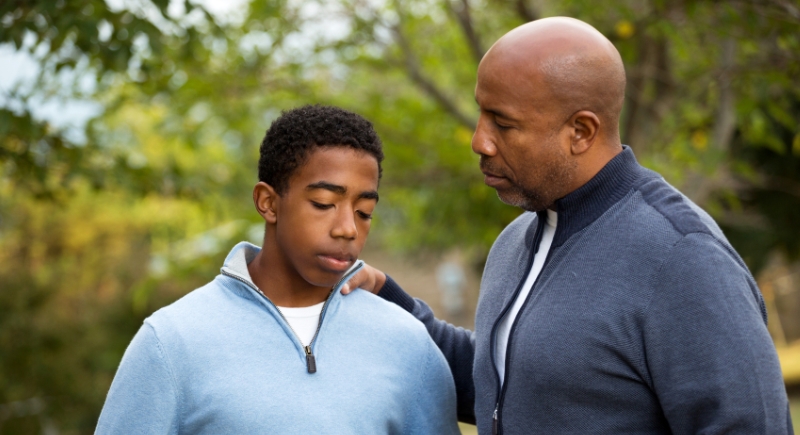Why You Should Stop Trying to Be Friends With Your Adult Children
It’s natural to want closeness with your grown kids. After years of guiding them, it can feel strange to pull back and let them live without your direction. Many parents believe turning the relationship into a friendship keeps the bond strong. But friendship changes the balance. Adult children don’t need a peer. Instead, they need a parent who provides grounding, perspective, and emotional safety.
When those roles blur, it creates confusion, tension, and strain. Healthy adult relationships depend on clear boundaries, mutual respect, and trust built on independence, not constant involvement or oversharing.
Friendship Blurs Authority

Image via iStockphoto/fizkes
Parents who step into “best friend” territory often lose the steady role that once helped their children feel secure. When a parent starts sharing personal struggles or trying to relate as an equal, the relationship changes in a way that can erode respect.
Studies show that blurred authority can lead to less confidence and even resentment in children who once relied on that guidance. Adult children may stop seeking advice, unsure where the line between parent and friend begins.
What they need is a parent who listens, gives perspective when asked, and models stability. Maintaining authority doesn’t mean controlling their lives. It means offering steady direction without competing for equality. Friendship can be healthy only when the foundation of parental respect stays intact.
Oversharing Puts Emotional Weight on Children
Various parents believe openness creates connection, but constant sharing places heavy responsibility on their children. When a parent confides financial troubles, romantic issues, or loneliness, it can leave the child feeling anxious or obligated to help.
Research in family psychology shows that this role reversal leads to stress and avoidance rather than intimacy. Adult children need emotional room to manage their own lives. Parents who lean on them for comfort risk turning natural affection into quiet resentment.
The healthiest way to ensure a meaningful relationship is to share appropriate parts of life, but rely on adult peers for deeper support. Children who feel emotionally safe—not burdened—are far more likely to stay connected over time. Respecting their mental space strengthens the bond far better than treating them as confidants.
Over-Involvement Weakens Independence

Image via Getty Images/digitalskillet
Parents who stay deeply involved in their adult child’s choices may believe they’re offering help, but it often comes across as an attempt to exert control. Constant questions about jobs, relationships, or plans can make grown children feel like they’re being monitored.
Keep in mind that independence requires room to make mistakes and learn from them. The strongest relationships emerge when parents step back and let experience do the teaching. Support doesn’t need to mean supervision; it means confidence in the person you raised. That trust invites your adult children to stay close without feeling smothered or judged.
Letting Go Builds Genuine Connection
Giving space doesn’t mean losing contact; rather, it means loosening control. Parents who stop using guilt or pressure often discover that their children reach out more freely. Genuine connection grows when time together feels chosen, not required. Statements like “You never call anymore” only create guilt, not warmth. A simple “I’d love to talk when you have time” communicates affection without demand.
On this note, studies on adult family relationships reveal that mutual respect, not obligation, keeps bonds strong. Parents who maintain full lives—friendships, hobbies, and goals—help their children feel free to return without pressure. When adult children come back because they want to, not because they must, the relationship becomes healthier and far more enduring.